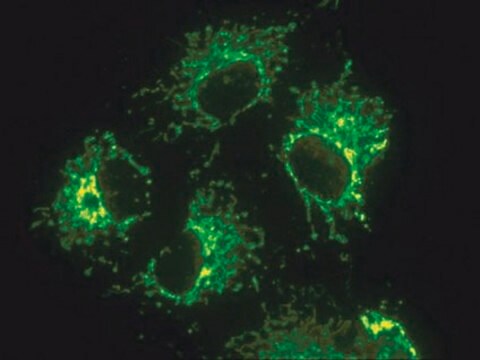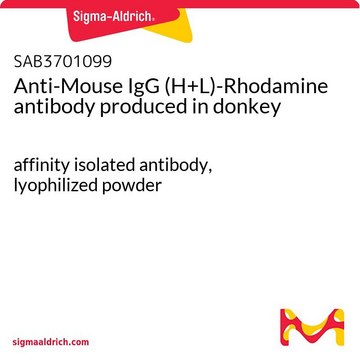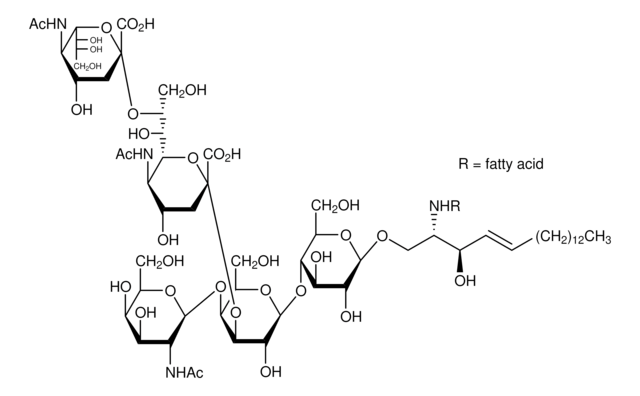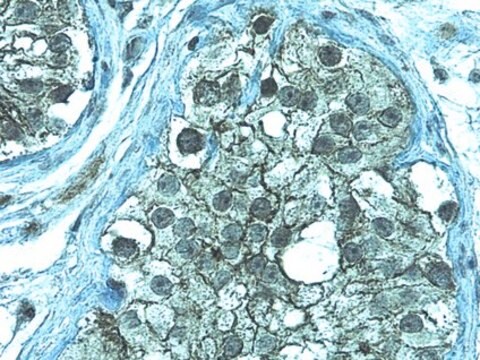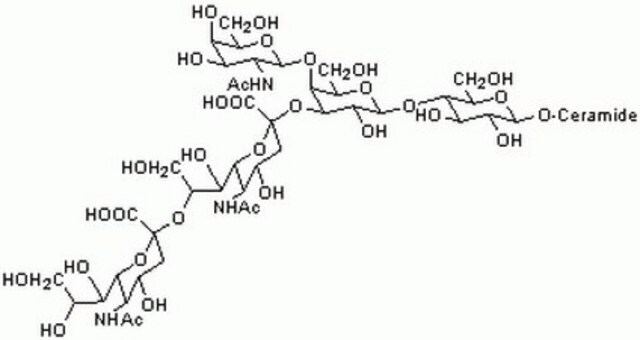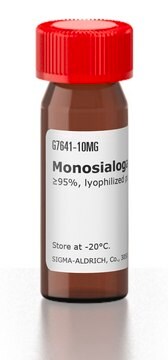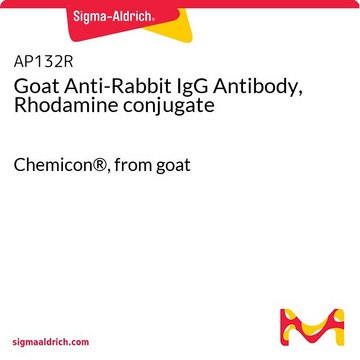AP192R
Donkey Anti-Mouse IgG Antibody, Rhodamine conjugate, Species Adsorbed
Chemicon®, from donkey
About This Item
Productos recomendados
origen biológico
donkey
Nivel de calidad
conjugado
TRITC conjugate
rhodamine conjugate
forma del anticuerpo
affinity purified immunoglobulin
tipo de anticuerpo
secondary antibodies
clon
polyclonal
reactividad de especies
mouse
fabricante / nombre comercial
Chemicon®
técnicas
immunofluorescence: suitable
Condiciones de envío
wet ice
modificación del objetivo postraduccional
unmodified
Descripción general
Especificidad
WAVELENGTH:
Absorption peak = 550 nm, Emission peak = 570 nm.
Aplicación
Secondary & Control Antibodies
Secondary Antibodies Adsorbed for Dual Labeling
Optimal working dilutions must be determined by end user.
Forma física
RECONSTITUTION:
Reconstitute with 500 μL of sterile distilled water.
RHODAMINE/PROTEIN:
Approximately 0.40 (A550/A280).
Almacenamiento y estabilidad
Información legal
Cláusula de descargo de responsabilidad
¿No encuentra el producto adecuado?
Pruebe nuestro Herramienta de selección de productos.
Frases de peligro
Consejos de prudencia
Clasificaciones de peligro
Aquatic Chronic 3
Código de clase de almacenamiento
11 - Combustible Solids
Clase de riesgo para el agua (WGK)
WGK 3
Certificados de análisis (COA)
Busque Certificados de análisis (COA) introduciendo el número de lote del producto. Los números de lote se encuentran en la etiqueta del producto después de las palabras «Lot» o «Batch»
¿Ya tiene este producto?
Encuentre la documentación para los productos que ha comprado recientemente en la Biblioteca de documentos.
Nuestro equipo de científicos tiene experiencia en todas las áreas de investigación: Ciencias de la vida, Ciencia de los materiales, Síntesis química, Cromatografía, Analítica y muchas otras.
Póngase en contacto con el Servicio técnico
